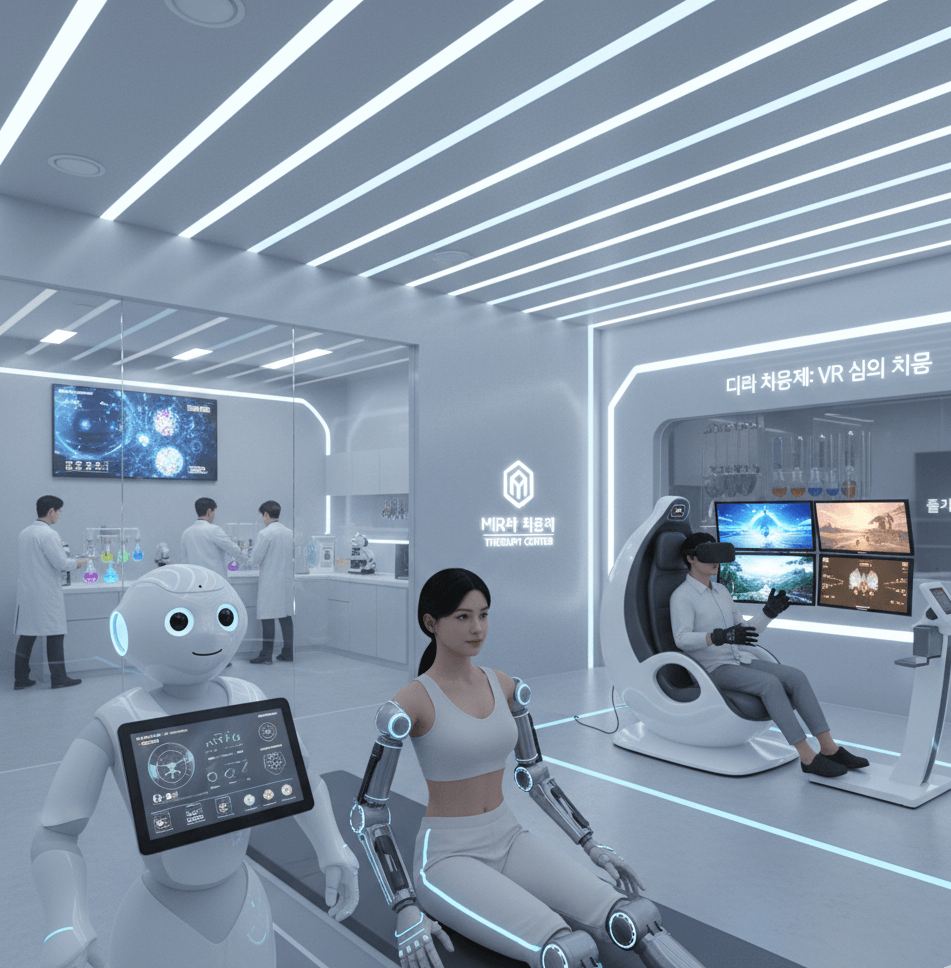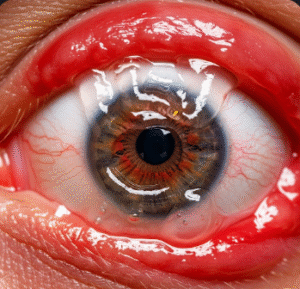Artificial Intelligence (AI) is transforming modern medicine, and nowhere is its impact more evident than in early disease detection research. In South Korea — a nation known for its technological innovation and advanced healthcare infrastructure — AI is rapidly becoming a key tool in predicting, diagnosing, and preventing diseases before they progress. By combining machine learning, big data, and medical imaging, Korean researchers are pushing the boundaries of precision medicine, aiming for a healthcare system that is proactive rather than reactive.
Why Early Detection Matters
Early detection of disease saves lives. Identifying conditions such as cancer, diabetes, cardiovascular disease, and dementia in their earliest stages can drastically improve treatment success rates and reduce healthcare costs.
● Cancer: Detecting cancer early increases survival rates by up to 90% for many types.
● Neurological Disorders: Early signs of Alzheimer’s or Parkinson’s can be detected years before symptoms appear, allowing for lifestyle changes and early interventions.
● Heart Disease: AI-based analysis of ECG and imaging data can catch subtle warning signs before major cardiac events occur.
● Infectious Diseases: Predictive modeling helps identify outbreaks faster, improving response time.
For Korea’s aging population, where chronic diseases are becoming more prevalent, AI’s role in prevention is especially critical.
How AI is Revolutionizing Disease Detection
AI uses vast amounts of health data — from medical images to genetic profiles — to recognize patterns that may escape human observation. Korean scientists are at the forefront of integrating AI across multiple medical fields.
● Medical Imaging Analysis: Deep learning algorithms analyze CT scans, MRIs, and X-rays to identify abnormalities such as lung nodules or tumors faster and more accurately than manual review.
● Genomic Data Interpretation: AI models decode complex genetic data to predict disease risk and guide personalized treatment strategies.
● Predictive Diagnostics: Machine learning systems assess patient records to forecast the likelihood of developing diseases like diabetes or hypertension.
● Voice and Speech Analysis: Korean researchers are developing voice-recognition AI that can detect early signs of neurological disorders through subtle changes in speech.
● Wearable Health Data: AI-powered wearables track metrics like heart rate, sleep, and glucose levels, detecting irregularities before they become serious.
These tools enable doctors to move from reaction-based medicine to prevention-based care, identifying health risks earlier than ever before.
Korea’s National Efforts in AI Healthcare Research
The Korean government has made early disease detection a national priority under its “Digital Health Innovation Strategy.”
● Korea AI Bio Medical Research Consortium: A government-led initiative that connects hospitals, universities, and AI companies to develop diagnostic algorithms.
● AI Hospitals Project: Dozens of hospitals, including Seoul Asan Medical Center, Yonsei Severance Hospital, and Samsung Medical Center, are designated as “AI Smart Hospitals” to integrate AI in diagnostics and patient management.
● National Genome Project: Korea’s genome research centers are using AI to map genetic patterns linked to chronic diseases and cancers specific to the Korean population.
● Public-Private Partnerships: Collaboration between startups and large corporations like Naver, Kakao, and LG AI Research is accelerating the commercialization of medical AI solutions.
Through these initiatives, Korea aims to position itself as a global leader in AI-powered healthcare research and innovation.
Key Research Areas and Breakthroughs
Korean scientists are focusing on multiple diseases where AI shows the most promise in early detection.
● Cancer Detection:
- AI imaging systems can identify breast, lung, and colorectal cancers at early stages with over 90% accuracy.
- Seoul National University Hospital has developed AI algorithms that detect small lung nodules invisible to the naked eye in CT scans.
● Cardiovascular Health:
- AI models analyze ECG data to predict heart failure risk and monitor arrhythmia.
- The Korea Institute of Science and Technology (KIST) is studying AI systems that integrate wearable sensor data for real-time heart monitoring.
● Neurological Disorders:
- Researchers at KAIST and Korea University are using AI-driven MRI analysis to detect early signs of Alzheimer’s and Parkinson’s.
- Algorithms analyzing speech, gait, and handwriting patterns are being tested to catch subtle cognitive and motor changes.
● Ophthalmology and Diabetes:
- AI tools detect diabetic retinopathy and macular degeneration from retinal scans within seconds.
- Hospitals are piloting mobile eye-screening apps that bring early detection to rural and elderly populations.
These advancements prove that AI is not just assisting doctors — it is becoming an integral partner in precision diagnosis.
Integration of Big Data and Machine Learning
Korea’s strength lies in its ability to collect and process massive volumes of medical big data through a well-connected healthcare system.
● National Health Insurance Database: Provides comprehensive, anonymized health data from millions of citizens for AI model training.
● Smart Hospital Networks: Hospitals share anonymized diagnostic and treatment data to improve algorithm accuracy.
● Machine Learning Platforms: Korean researchers are building AI systems capable of cross-referencing lab results, imaging, genetics, and lifestyle factors to predict disease onset.
These data-driven ecosystems enhance the accuracy, scalability, and reliability of AI-driven diagnostic tools.
The Role of Startups and Tech Innovation
Korea’s booming health-tech sector is a major driver of AI-based detection research.
● Lunit: A leading AI medical imaging startup whose software helps radiologists detect lung and breast cancer with exceptional accuracy.
● VUNO: Specializes in medical deep learning, creating AI solutions for ECG, chest X-ray, and brain MRI analysis.
● DeepBio: Focuses on AI-powered pathology to identify prostate and other cancers through microscopic tissue analysis.
● Mediwhale: Uses AI to detect systemic diseases like heart and kidney conditions by analyzing retinal images.
These startups collaborate closely with hospitals and universities, ensuring innovation translates into clinical practice quickly.
Benefits of AI in Early Disease Detection
The advantages of AI in medical research and practice are profound:
● Speed: AI systems process images or data within seconds, enabling faster diagnosis.
● Accuracy: Reduces human error and improves early identification of abnormalities.
● Accessibility: Remote AI tools help reach rural and aging populations with limited access to specialists.
● Personalization: AI can tailor prevention and treatment strategies to each individual’s risk profile.
● Cost Efficiency: Early detection minimizes the need for expensive late-stage treatments, easing healthcare costs.
By integrating AI into national healthcare, Korea is not only improving outcomes but also making its system more sustainable.
Ethical and Practical Challenges
While AI’s potential is immense, challenges remain in ensuring safe and equitable use.
● Data Privacy: Protecting sensitive medical information remains a top priority.
● Bias and Accuracy: Algorithms must be trained on diverse data to avoid diagnostic bias.
● Regulatory Approval: Medical AI systems must undergo rigorous testing to meet safety standards.
● Human Oversight: Doctors must remain central in decision-making — AI should support, not replace, clinical judgment.
● Public Trust: Educating patients and physicians about AI’s reliability is key to widespread adoption.
Korea is addressing these issues through strict data protection laws and transparent research frameworks that prioritize patient safety.
The Future of AI in Preventive Medicine
The future of AI in Korean healthcare is bright and fast-evolving.
● AI-Integrated Health Checkups: Routine medical exams will soon include AI-assisted screenings to detect early disease indicators automatically.
● Home-Based Monitoring: Smart devices will continuously collect health data, alerting doctors to potential risks.
● AI in Genomics: Machine learning will enable highly personalized disease prevention plans based on individual DNA.
● Collaborative Research Networks: Korea plans to expand international partnerships to share medical data and AI breakthroughs.
● AI-Driven Vaccination and Disease Modeling: Predictive AI systems will strengthen national preparedness for infectious diseases.
Through these innovations, Korea aims to create a healthcare model that emphasizes prevention, precision, and personalization.
Final Thoughts
AI is revolutionizing how Korea detects and manages disease — transforming healthcare from treatment-focused to prevention-focused. By merging scientific intelligence with human compassion, Korea is building a medical ecosystem where illnesses can be identified earlier, treatments tailored more precisely, and lives saved more effectively.
● Prevention is power — AI turns data into early action.
● Technology and empathy together create smarter healthcare.
● Korea’s innovation in AI medicine is shaping a healthier future for all.
As AI continues to evolve, its role in early disease detection will only deepen — turning Korea’s healthcare vision of precision, accessibility, and well-being for every citizen into a reality.













